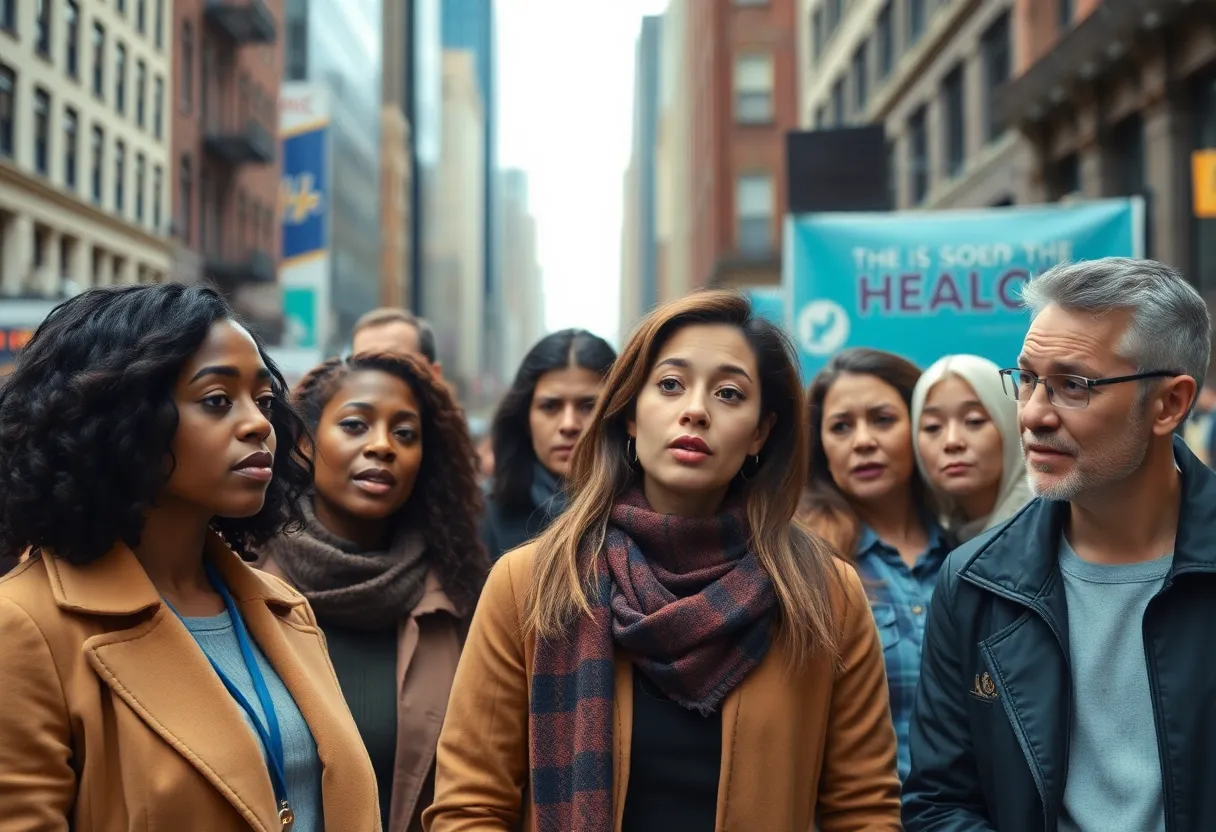News Summary
Governor Kathy Hochul and House Majority Leader Hakeem Jeffries have raised concerns about President Trump’s ‘Big Beautiful Bill,’ which could jeopardize healthcare for 1.5 million New Yorkers. The bill, now moving to the Senate, proposes significant cuts to Medicaid funding, affecting vulnerable populations the most. New York’s Health Department has introduced a tool to help citizens understand the potential impact based on their congressional districts. With the political landscape shifting, both leaders advocate for residents to stay informed about their healthcare rights.
ALBANY, N.Y. — Governor Kathy Hochul and House Majority Leader Hakeem Jeffries have alerted New Yorkers to the potential healthcare risks posed by President Trump’s “Big Beautiful Bill.” This legislation, which has already passed the House of Representatives and is now moving to the Senate, could threaten the healthcare coverage of approximately 1.5 million residents in New York alone. Furthermore, hospitals across the state are forecasted to experience losses exceeding $3 billion if the bill becomes law.
The bill includes significant cuts to federal support for Medicaid, projected at nearly $700 billion over the next decade. The Congressional Budget Office estimates that this reduction could leave around 13.7 million people nationwide without health insurance. Vulnerable populations are expected to face the brunt of these changes, particularly LGBTQ+ individuals, people of color, and low-income families.
The State’s Response
In response to the bill’s potential impact, the State Department of Health has introduced an interactive tool designed for New Yorkers to better understand how the bill could affect them based on their congressional districts. The tool aims to provide citizens with pertinent information to make informed decisions regarding their healthcare options.
Wider Implications
The implications of the “One Big Beautiful Bill” extend beyond New York, particularly affecting states like Ohio, where approximately 750,000 residents could be at risk of losing Medicaid coverage. The cuts proposed in the bill would not only impact those who directly rely on Medicaid but could also increase the number of emergency room visits across the nation as people forego routine preventative care due to loss of coverage.
Medical professionals have raised alarms, stating that the expected cuts to Medicaid will lead to increased strain on hospital resources and ultimately contribute to poorer health outcomes for patients. New estimates indicate that the loss of preventative healthcare funding could lead to greater long-term healthcare costs for taxpayers.
Targeted Cuts to LGBTQ+ Healthcare
Alast-minute amendment in the proposed bill specifically targets transgender Americans by banning Medicaid and Children’s Health Insurance Program (CHIP) funding for gender-affirming care. These services would also be excluded from the definition of “essential health benefits” under the Affordable Care Act. Critics of the bill highlight that LGBTQ+ individuals are disproportionately reliant on programs that would see drastic cuts and argue that these measures compromise the healthcare security of vulnerable groups.
The Columbus City Council has responded to the expected impact of the bill by allocating $265,000 to support the Kaleidoscope Youth Center, which provides resources for LGBTQ+ youth. Research indicates that LGBTQ+ adults are nearly twice as likely to depend on Medicaid as their primary source of health insurance. Approximately 152,000 transgender individuals across the United States could be affected if the bill is passed.
The Political Landscape
With the bill now transitioning to the Senate, the political dynamics are critical. Currently, for the bill to be defeated, all 45 Democrats and two Independents must oppose it, while at least four Republican senators would need to join them in voting against it. Some Republicans, including Bernie Moreno, have indicated support for the bill, while others, like Jon Husted, have defended it as necessary for tax cut measures.
As the legislative process continues, the future of healthcare for millions of New Yorkers and countless others across the country remains uncertain. Both Governor Hochul and House Majority Leader Jeffries urge residents to stay informed and advocate for their healthcare rights as discussions regarding the bill evolve.
Deeper Dive: News & Info About This Topic
- CBS6 Albany: Trump’s “Big Beautiful Bill”
- Wikipedia: Medicaid
- Politico: State Pushes Back on Trump’s Proposed ACA Changes
- Google Search: Trump healthcare policy
- News10: Lawmakers Urge Trump to Reverse Cuts
- Google Scholar: Trump healthcare cuts
- Times Union: Protesters Against Trump’s Healthcare Cuts
- Encyclopedia Britannica: Healthcare Legislation
- CBS6 Albany: GOP Proposed Medicaid Cuts
- Google News: New York Medicaid cuts








